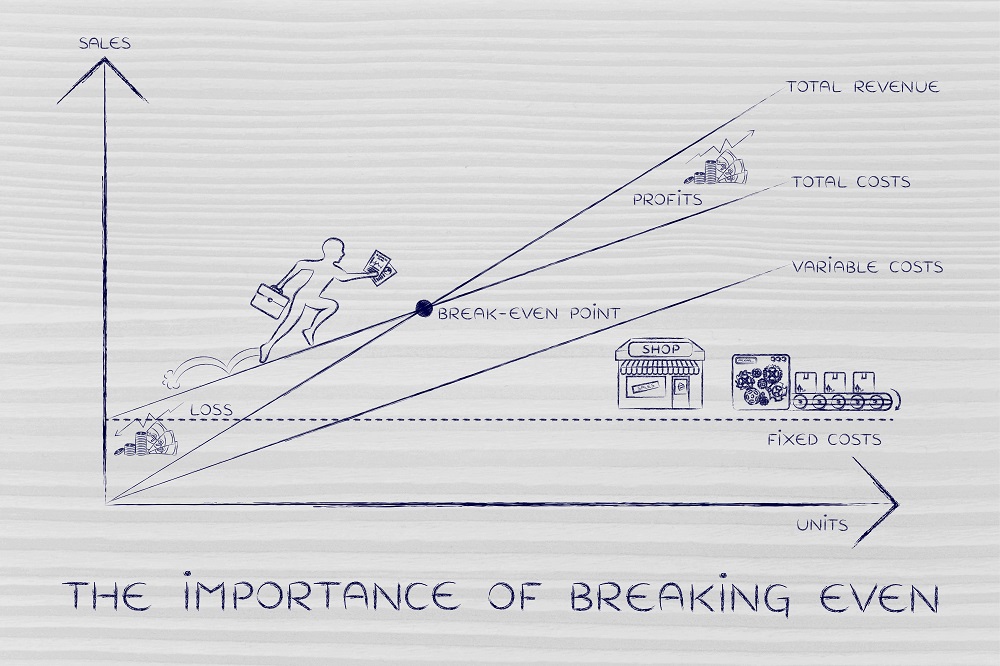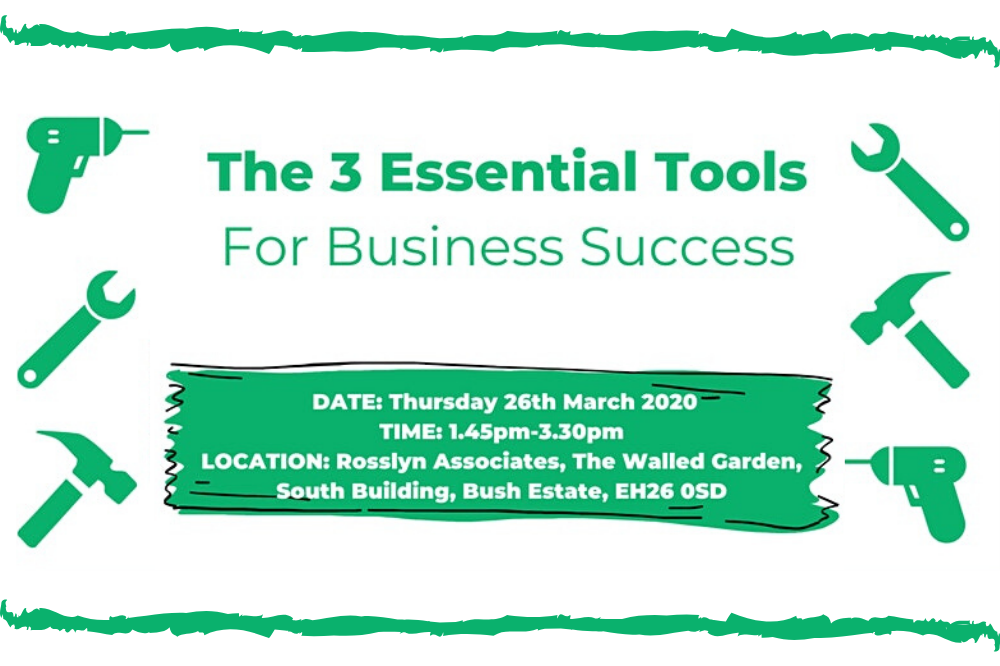
How to improve your cashflow!
Managing your cashflow well can be difficult, but it is an essential part of running a profitable business. You need to get the cash into the bank which you are owed by your customers and strategically plan your outgoings to ensure your businesses cashflow is steady. Here we’ll look at different ways in which you can manage your business’s income and outgoings so that you don’t run out of cash!
The majority of businesses have to produce their products or provide their service to their customers before they get paid. This means that business owners need to manage their cash well, so they have enough to pay all expenses involved with the production of their product before they are paid by their customer. If a potential customer comes to you with a large order, that’s great, but if you don’t have sufficient cash, you won’t be able to pay for the materials, labour or any other costs to provide the product or service, and if you can’t afford the costs of supplying the product/service, you can’t make the sale and there’s no hope of making a profit. It’s a vicious cycle that good cash flow management can solve!
Money in
-Invoicing
Revenue does not equal money in the bank, and as mentioned before, services and products are usually provided before a customer pays. This means that in order for revenue to turn into cash, customers need to pay promptly. That is why getting your invoicing right is so important.
-Invoice as soon as work is complete
Your clients/customers will not pay you until you have provided them with an invoice. That’s why, if you want to be paid promptly, you should invoice straight away. Just because the job has been done, it doesn’t mean your customer will automatically pay, and you can’t assume they know how much to pay you. Ensure your invoice is accurate and prompt for the best chance of receiving prompt payment.
-Provide clear and defined payment terms
Another way to get your clients/customers to pay you on time and in the way that you want them to, is to explain clearly your businesses policy. If your customers don’t know your policy, then they are much more likely to delay payment. Remember, your clients/customers are likely trying to manage their cashflow as well, especially if their customers are businesses, therefore they may be putting off paying invoices until they are due – make sure yours is a priority!
If you don’t already know, you can look up the guidelines of what the standard payment terms are for your industry and make yours fit in with the industry norms, i.e. what your customers would expect. Once you have figured out what your payment policy is, make sure you communicate it clearly to your clients/customers and all your employees, so everyone knows exactly what is expected. Clients know when you expect them to pay you and by what method, and your staff know when they should expect customers to pay and the relevant people know when invoices are due/overdue. Put your payment policy clearly on every invoice you send and make sure your customers know your policy when they sign up to purchase a product or service from you.
-Don’t keep clients who don’t pay
Many businesses have clients/customers who continuously don’t pay their bills, or always pay late. A good way of keeping your cashflow healthy is to only keep clients who pay you and pay you on time. It can be hard to turn people away, but if you want your business to survive, you need to say no to customers who aren’t prepared to stick to your business’s policy.
-Keep track and send reminders
Make sure you don’t forget about any bills which your customers haven’t paid. Keep track of all the money which you are due and don’t be afraid of sending reminders when a payment is becoming due, or is overdue.
-Break big bills into smaller parts
As mentioned earlier, it is likely that your clients/customers are also trying to effectively manage their own cashflow. By breaking a large bill into smaller equal monthly payments, it could make it easier for your customer to pay you. Instead of billing them £9,000 all at once, get them to set up a Direct Debit so you receive monthly payments of £750. This is more affordable and means you are much more likely to ever see the money you are due.
Money Out
So, we’ve covered income and ways to get paid quicker, next we need to look at ways you can manage your business’s outgoings, to keep as much cash in the bank as possible.
-Be aware and plan
Good cashflow management relies on you being aware of all your outgoings and knowing exactly when they are due, that way you can keep track of when each invoice is due and strategically plan when each bill will be paid. Instead of paying invoices as soon as you receive them, check the terms and delay paying them until they are due, or when the it makes sense in relation to the money you have coming in. Of course, still paying them on time. You can also arrange to pay any Direct Debits you are due at different times during the month. This means all your cash won’t leave the bank at once.
-Ask for discounts/deals
If you have a good track record with any of your suppliers, ask them for a discount. Many businesses will reward you for being a loyal customer and for paying bills on time. If you are signing up to use a new supplier, try to negotiate the best deal you can with them.
Borrowing
The best way of managing your cashflow is by getting as much cash in the bank, while strategically planning your outgoings, in ways such as mentioned above. However, sometimes you may need to borrow cash. If so, you need to think carefully. Your business must pay back any cash it borrows from lenders, this means the business needs to make a profit to do so. It’s not to say that borrowing is never the right thing to do, but you need to plan carefully, or else you may end up in a continuous cycle of debt.
Grow your business with Rosslyn Associates
We are here to help business owners grow the business they really want. At Rosslyn Associates, we can help you manage your cashflow, and so much more, so your business can flourish, giving you more time, money and peace of mind. We use up to date cloud accounting software which, along with our skills and expertise, helps with the management of your cashflow. If you choose our business development services, we will work closely together, so we really get to know you and your business. We’ll discover the areas in your business which we can help you improve, and with the help of our business planning software, we can create a plan, put it in place and have regular accountability meetings to ensure you meet your goals.
FREE CASHFLOW MANAGEMENT WEBINAR
If you would like to learn more about how to improve your business’s cashflow, join us for our next free webinar – Cashflow Management!
The benefits of attending:
• Learn the difference between profit and cash surplus in your business
• Learn how the working capital cycle works
• Establish your Cash Conversion Cycle
• Identify the causes of poor cashflow
• Understand the process changes that improve your cashflow
Making great business profits is one thing. It’s not much comfort if your bank account doesn’t reflect your profits!
• Every wonder why your bank account doesn’t reflect your profit?
• Don’t understand your Cash Conversion Cycle?
• Want to have better cashflow this year?
If you’d like to discuss how we could work together, get in touch. Call the office on 0131 445 1825 or email info@rosslynassociates.co.uk, and one our team will be happy to help!






That’s excellent advice!
82% of small- mid-sized businesses fail because of cash flow.
The most common approach is to look at it from an accountants viewpoint i.e. 1. either cut costs or 2. improve receivables
I would like to offer another approach- which is creating more cashflow!
From experience when you fine-tune various aspects of the marketing mix by as little as 3-5% each, the overall effect compounds giving results of 100% and more!
It seems magical but it is really just a simple scientific approach overlooked by business owners because they are not marketers.
Most businesses under 5 million can’t possibly afford a fulltime CFO.
The solution? Hire a fractional CFO
For about 25k quid a year you can easily generate 200k or more